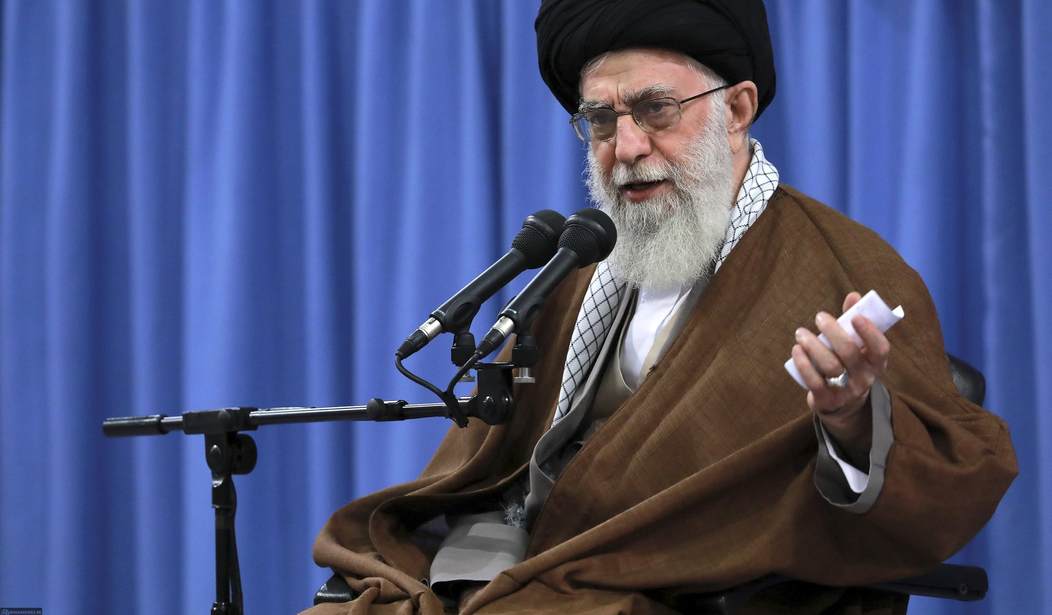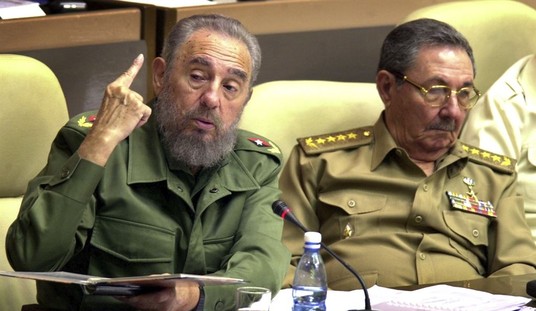President Trump was good to his word, dumping the rotten Iran deal in the toughest possible way. First, he stated in so many words that the United States wanted regime change, not just a revised deal with the mullahs. Second, he warned that any nation assisting Iran’s nuclear program also would face sanctions (it’s not clear what would trigger such sanctions, which is going to worry the Europeans). Third, he showed contempt for European diplomacy by hailing Israel’s acquisition of Iranian nuclear-weapons plans, something that the Europeans insisted had no bearing on the present deal.
You don’t get tougher than that. Ronald Reagan must be opening champagne in heaven.
Now comes the tough part.
Iran’s economy is a catastrophe, as I wrote more than a year ago–despite higher oil prices and despite the lifting of sanctions under the Obama deal. The Iran Revolutionary Guard Corps (IRGC) runs the country the way Al Capone ran Cicero, Illinois, and has left the banking and pension system bankrupt. There are frequent strikes, demonstrations, riots and other expressions of popular disgust at the regime. But the IRGC won’t give up. If the domestic opposition gains power, they’ll be hanged, and they can’t flee the country, because they have no place to go.
Iran’s massive campaign of ethnic cleansing in Syria is proceeding, after nearly half the population was driven from its homes, to be replaced by Shi’ite mercenaries imported by Iran. Russia isn’t particularly committed to Iran’s imperial ambitions but has no reason to interfere. That sets up a prospective war between Iran and Israel.
China, Russia, and Turkey (with some European collusion) will use the return to sanctions to put alternative currency and financing mechanisms into place, free from American interference. That’s a lot harder than it sounds, but it represents a long-term threat to American power.
Iran doesn’t want a real fight with Israel any time soon, as I explained this morning in Asia Times:
An Israeli-Iran war would not be a limited conflict. Both sides would attempt to destroy the other’s capacity to fight, and the odds for the moment favor Israel.
Two dozen Israeli missiles or bomber sorties could wipe out Iran’s economy in a matter of hours, and that makes a war unlikely for the time being. Fewer than a dozen power plants generate 60% of Iran’s electricity, and eight refineries produce 80% of its distillates. A single missile strike could disable each of these facilities, and bunker-buster bombs of the kind that Israel used last month in Lebanon would entirely destroy them. And as Hillel Frisch points out in the Jerusalem Post, with a bit more effort Israel could eliminate the Port of Kharg from which Iran exports 90% of its hydrocarbons.
Russia would be the biggest beneficiary of such a war, which would send the price oil flying. A Russian opposition leader suggested on background that Putin may help Israel attack Iran, for example by helping Israeli planes bypass Iran’s Russian-built air defense system.
For the time being, nothing will happen. Iran will be cautious and look for leverage in Europe, Russia and China, avoiding a near-term military confrontation. Meanwhile the Revolutionary Guard will circle the wagons at home. President Rouhani warned that Iran could be ready to start enriching uranium again within three weeks if the deal fell apart. National Security Adviser John Bolton warned today that additional sanctions on Iran my follow the restoration of the present round. Sanctions, though, will not dissuade the Iranian regime from trying to build nuclear weapons.
If Iran attempts to build nuclear weapons or their components, the next step may be a surgical strike on its enrichment facilities.










Join the conversation as a VIP Member